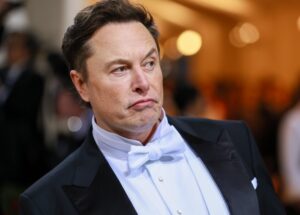An intense debate has been sparked across social media and beyond as a result of Elon Musk’s recent controversial statement regarding the boycotting of “biological males” who participate in women’s sports.
To express his belief that the participation of biological males in women’s sports is detrimental to fairness and competition, the billionaire entrepreneur and CEO of companies such as Tesla and SpaceX took to Twitter to express his opinion. Since then, his statements have garnered a great deal of attention, eliciting backing as well as criticism from a wide range of members of society.
In the midst of ongoing conversations about the representation of transgender athletes in women’s sports, Musk has made his comments. This issue has gained momentum in recent years as a result of the increase in the number of transgender athletes competing in events that are traditionally reserved for women.
Transgender athletes should be allowed to compete in accordance with their gender identity, according to transgender inclusion advocates, who argue that this right should be granted. Nevertheless, there are those who argue that it creates an uneven playing field, particularly in sports that require a lot of physical exertion, where biological males may have natural advantages in terms of strength, speed, and endurance. Musk believes that this is the case.

As a result of the uproar that has surrounded Musk’s statement, critical questions have been raised regarding the appropriate balance between fairness and inclusivity regarding sports. On the one hand, the argument put out in support of transgender rights in sports centers on the concept of equality and the provision of opportunity for all athletes, irrespective of their gender identity.
However, there are many who believe that certain biological advantages could potentially undermine the fairness of competitions. This is especially true in high-level competitions, where the outcome of the competition frequently depends on the smallest of variations in performance.

Some individuals have responded positively to Musk’s demand for a boycott of events in which biological males compete in women’s sports. This is especially true for individuals who are of the opinion that the integrity of women’s sports should be safeguarded. His statement, for some, brings to light the conflict that exists between promoting the rights of transgender individuals and ensuring that all athletes participating competitive sports are on an equal playing field.

Because it touches on more general social concerns regarding gender, fairness, and human rights, it is quite doubtful that this topic will be resolved any time soon. It is expected that both sides will continue to advocate for their respective perspectives as the discussion continues.
The objective is to establish a middle ground that acknowledges and respects the rights of transgender athletes while also ensuring that women’s sports competitions are conducted more fairly. This current conversation is further complicated by Elon Musk’s statement, which only serves to emphasize how difficult it is to navigate these delicate topics in the modern world.
